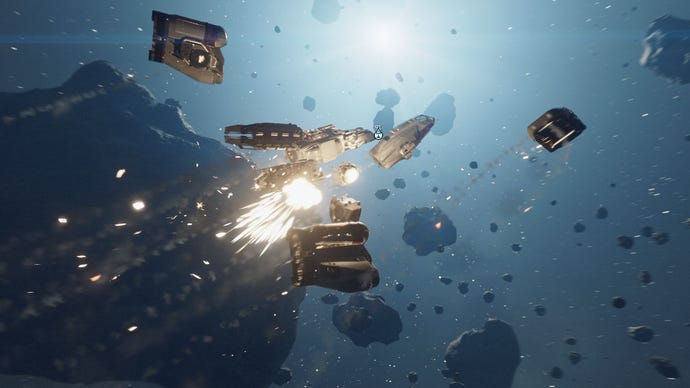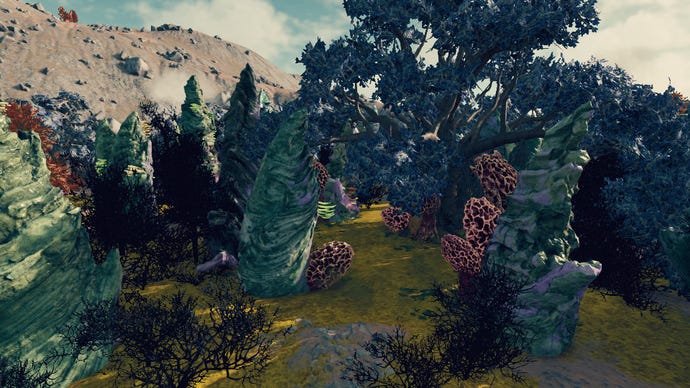Game developers shed light on why Starfield didn't use Unreal Engine
Re-Creation
Ring the bell, everybody, it's time for another round of game developers telling players that they don't really understand what a "game engine" is. The spark this time is little-known science fiction adventure Starfield, which I believe we've reported on before. The game has a few obvious foibles - in my experience as a space pirate, NPCs sometimes struggle to navigate their surroundings, and then there are those stark disconnects between planetary surfaces and orbital space. Hiccups such as these have led a few players to wonder whether the game might work better using different technology, and in particular, the newer versions of Epic's ubiquitous Unreal Engine. Isn't Bethesda's proprietary Creation Engine, which the company have been updating since 2011, getting a little long in the tooth?
You'll find a lot of the discussion below this post from Digital Foundry boffin John Linneman on Twxter, which has attracted both gloating PlayStation fans (remember, Starfield is Xbox-only in console land) and a number of thoughtful replies from some fairly senior game developers. This conversation goes back a fair way, of course - people have been ragging on Bethesda for using "the same engine" for years. And there's a definite air of world-weariness to some of the developer responses.
"I love Unreal but what people are missing is that Bethesda's codebase has been tailor made for big, open world RPGs," observed Giuseppe Navarria, a tech design director at Gears Tactics developer Splash Damage. "They have years and years of tech (quest systems, managing and serialising items) that you would need to redo, also those kind of games are commonly CPU-heavy."
Navarria added that "people know so little about what feature[s] unreal has, and how much of that is actually currently usable in production in a game with the scale of Starfield. Not even counting that Starfield started development way before epic introduced many of the features they list".




Lukas Joley, a technical game designer at Square Enix, agrees that game engines are designed and iterated upon to meet specific needs: you can't just paste an entirely different project on top somehow and expect it to work the same or better, let alone a project as vast and intricate as a Bethesda Game Studios RPG. "An engine is not just a package of graphics, physics and input handling," he wrote. "The engine architecture defines what games it can handle well. CE has been used for open world games for over a decade, there is no doubt that it's more mature for open worlds than UE4 (probably even UE5).
"This is not only a question of backend stuff like data streaming, it's also how the content tools are set up," Joley went on. "If your tools don't support making open worlds, you're not gonna ship any open world games. Even UE5 is clearly an engine and toolkit tailored for corridor shooters."
There's more Hot Dev Chat in the threads linked, but I'm going to wind up with this thought from Thomas Puha, communications director at Alan Wake developer Remedy. "People have no idea how long it takes to move decades of systems onto a new engine," he wrote. "Years."
I know what a game engine is, obviously. It's a small hamster wheel cunningly hidden away behind the .exe file in the game folders. The hamster is called Horsepower and providing it is appeased with a nourishing diet of RAM and teraflops, it will turn the wheel at a rate of between 60 and 120 rotations per second, which is where ray-tracing comes from.
Looking beyond the tech itself, I'm interested in the rhetorical and cultural dimensions of the "game engine" concept, as explored in Tara Hillegeist's essay on the origins of the term. "When John Carmack coined the phrase "game engine" to describe the original DOOM's programming code, he meant it to evoke a car: a manufactured thing, assembled in sequence by multiple hands," Hillegeist wrote. "Much like the rest of Carmack's career, it was a deliberate attempt at image and tone control, as much a piece of social engineering as the game was computer engineering."









